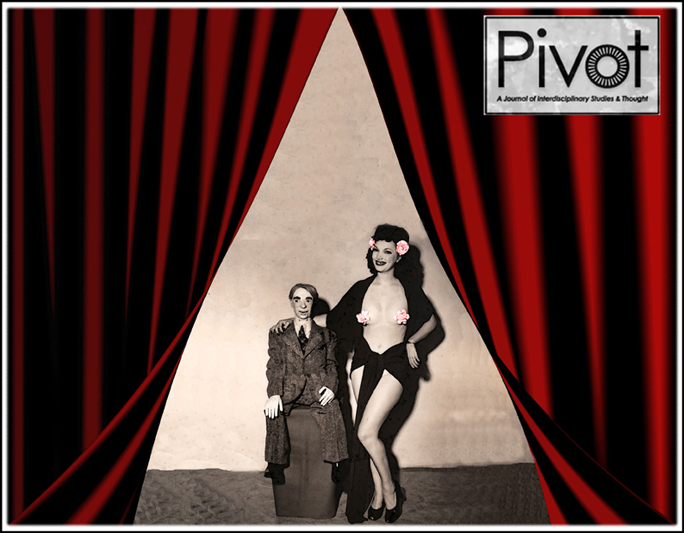The Antisocial Fantasies of Jude the Obscure
DOI:
https://doi.org/10.25071/2369-7326.34714Abstract
This article discusses two prevalent tensions in Thomas Hardy’s Jude the Obscure: Jude’s failed attempts to become a Christminster scholar, and his vexed sexual relationships. At different points in the novel’s publication history, Hardy figures each of these tensions as the novel’s primary conflict. By so doing, he seems to invite the reader to decide whether the novel is really about “the tragedy of unfulfilled aims” or “a deadly war waged between the flesh and spirit.” Reading the novel through a psychoanalytic framework, I argue that Hardy offers this as a false choice. Rather, I suggest that Jude’s academic and sexual ambitions are simply two manifestations of a single antisocial fantasy.
References
Edelman, Lee. No Future: Queer Theory and the Death Drive. Durham, NC: Duke UP, 2004. eBook. DOI: https://doi.org/10.1215/9780822385981
Eagleton, Terry. “Thomas Hardy and Jude the Obscure.” Introduction: Jude the Obscure New Wessex Edition (1974). The Eagleton Reader. Ed. Stephen Regan. Malden MA: Blackwell, 1997: 36-48. Print.
Freud, Sigmund. “Beyond the Pleasure Principle” (1920). The Penguin Freud Reader. Ed. Adam Philips. New York NY: Penguin, 2006: 132-195. Print.
Harding, James M. “The Signification of Arabella’s Missile: Feminine Sexuality, Masculine Anxiety and Revision in Jude the Obscure.” The Journal of Narrative Technique. 26.1 (Winter, 1996): 85-111. Print.
Hardy, Thomas. “Candour in English Fiction.” Thomas Hardy’s Personal Writings. Ed. Harold Orel. London UK: MacMillan. 1966. Print.
Hardy, Thomas. Jude the Obscure. Ed. Cedric Watts. Toronto ON: Broadview, 2004. Print.
Ingham, Patricia. “The Evolution of Jude the Obscure.” Review of English Studies. 27.106 (February, 1976): 27-37. Print. DOI: https://doi.org/10.1093/res/XXVII.105.27
Lacan, Jacques. Seminar XX: On Feminine Sexuality, the Limits of Love and Knowledge. Trans. Bruce Fink. New York NY: Norton, 1998. Print.
Maroni, Francesco. Victorian Disharmonies: A Reconsideration of Nineteenth-Century Fiction. Cranbury NJ: John Cabot UP, 2010. Print.
Milton, John. Paradise Lost. Ed. John Leonard. New York NY: Penguin, 2000. Print.
Paterson, John. “The Genesis of Jude the Obscure.” Studies in Philology 57.1 (1966): 87-98. Print.
Sumner, Rosemary. Thomas Hardy: Psychological Novelist. London, UK: MacMillan. 1981. Print. DOI: https://doi.org/10.1007/978-1-349-08577-4
Žižek, Slavoj. The Plague of Fantasies. New York NY: Verso, 1997. Print.
Žižek, Slavoj. The Sublime Object of Ideology. New York NY: Verso, 1989. Print.


